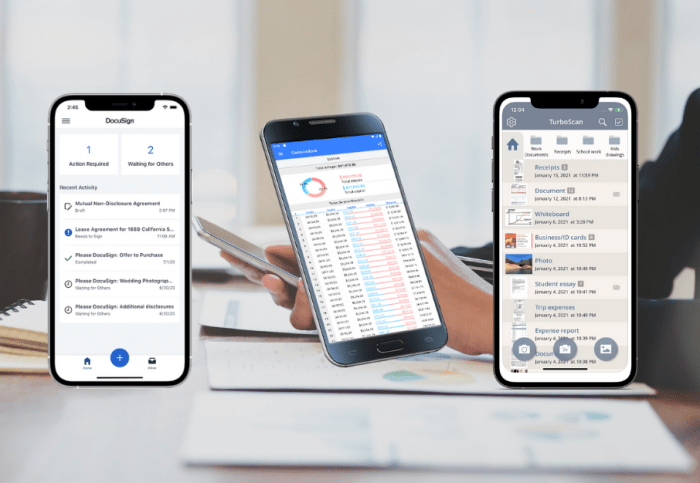Mobile apps for real estate agents are revolutionizing the way professionals operate in this competitive sector. With the rise of technology, these applications have become essential tools that not only enhance productivity but also streamline communication with clients and manage properties more effectively. As agents increasingly rely on mobile solutions, understanding the scope and functionalities of these apps is vital for staying ahead in the market.
From facilitating transactions to improving client interactions, mobile apps offer a range of features tailored to the unique needs of real estate agents. This article explores the importance of these applications, highlighting popular types, essential features, best practices for usage, challenges faced, future trends, and successful case studies that showcase the transformative impact of mobile technology in real estate.
Importance of Mobile Apps for Real Estate Agents
Mobile apps have transformed the real estate industry, offering agents innovative solutions to enhance their productivity and streamline communication. In a fast-paced market, being able to access information and manage client relationships on-the-go is crucial for success.
Mobile apps significantly enhance productivity by allowing real estate agents to manage their tasks efficiently from their mobile devices. They help agents keep track of appointments, manage listings, and communicate with clients instantly. Moreover, mobile apps foster improved communication between agents and clients, enabling seamless updates on property statuses and instant responses to inquiries. Another key benefit of these apps is their role in property management, allowing agents to organize listings, schedule showings, and manage client interactions all in one platform.
Types of Mobile Apps for Real Estate Agents
.png?w=700)
There are various mobile apps specifically designed for real estate professionals, each tailored to meet specific needs within the industry.
- Popular Mobile Apps: Some well-known apps include Zillow, Realtor.com, and Redfin, which provide extensive property listings and market insights.
- Transaction Management Apps: Apps like Dotloop and Skyslope allow agents to manage contracts and transactions efficiently, ensuring compliance and organization.
- Property Listing Apps: Applications such as Homesnap and Propertybase help agents showcase listings with rich media and detailed descriptions, enhancing the client’s viewing experience.
Features to Look for in Real Estate Mobile Apps

When choosing mobile apps, certain features can greatly enhance their effectiveness for real estate agents.
- Essential Features: Key features to consider include mobile-friendly property searches, push notifications for new listings, and integrated mapping tools for easy navigation.
- User-Friendly Interfaces: A straightforward interface is crucial, allowing agents to navigate the app easily and minimize the learning curve.
- Integrated CRM Systems: Apps that offer integrated Customer Relationship Management (CRM) systems enable agents to manage leads and client interactions effectively.
Best Practices for Using Mobile Apps in Real Estate
.png?w=700)
To maximize the benefits of mobile apps, agents should adopt certain best practices in their daily routines.
- Optimizing Mobile App Usage: Agents should set aside dedicated time to familiarize themselves with app functionalities and features to streamline their workflow.
- Integrating Apps with Existing Systems: Ensuring that mobile apps synchronize with desktop systems can create a seamless experience and improve data accuracy.
- Regular Updates and Maintenance: Agents need to regularly update their apps to benefit from new features, security enhancements, and bug fixes.
Challenges Faced by Real Estate Agents with Mobile Apps
While mobile apps offer numerous advantages, they also present some challenges that agents may encounter.
- Common Challenges: Agents may face difficulties in adapting to new technologies or inconsistencies in app performance and reliability.
- Security Concerns: Data protection is a significant issue, and agents must implement best practices such as using strong passwords and enabling two-factor authentication.
- Limitations of Certain Apps: Some mobile apps may lack comprehensive features, limiting their effectiveness in managing complex transactions.
Future Trends of Mobile Apps in Real Estate
The landscape of mobile apps in real estate is continually evolving, driven by emerging technologies that are shaping the future of the industry.
- Emerging Technologies: The integration of Artificial Intelligence (AI) and machine learning can enhance personalization in property recommendations, making it easier for agents to match clients with suitable listings.
- Virtual Reality Impact: Virtual reality is set to change property showcasing, allowing clients to take immersive virtual tours of listings directly through their mobile devices, enhancing the buying experience.
Case Studies of Successful Mobile App Implementation, Mobile apps for real estate agents
Several real estate agencies have successfully adopted mobile apps, demonstrating the tangible benefits of this technology.
- Successful Agency Examples: Agencies like Keller Williams have integrated mobile apps into their operations, reporting significant improvements in lead management and client engagement.
- Results Post-Implementation: After adopting mobile solutions, agencies often see increased efficiency in transaction management and a higher rate of client satisfaction.
- Unique Approaches: Different agencies have tailored their app usage based on specific market needs, focusing on features that resonate with their target audience.
Final Conclusion: Mobile Apps For Real Estate Agents
In conclusion, mobile apps for real estate agents are not just a trend but a fundamental shift in how the industry operates. By embracing these technologies, agents can enhance their productivity, improve client relationships, and efficiently manage their property listings. As the industry evolves, staying informed about the latest developments and adopting best practices will be crucial for success in a landscape increasingly dominated by mobile solutions.
